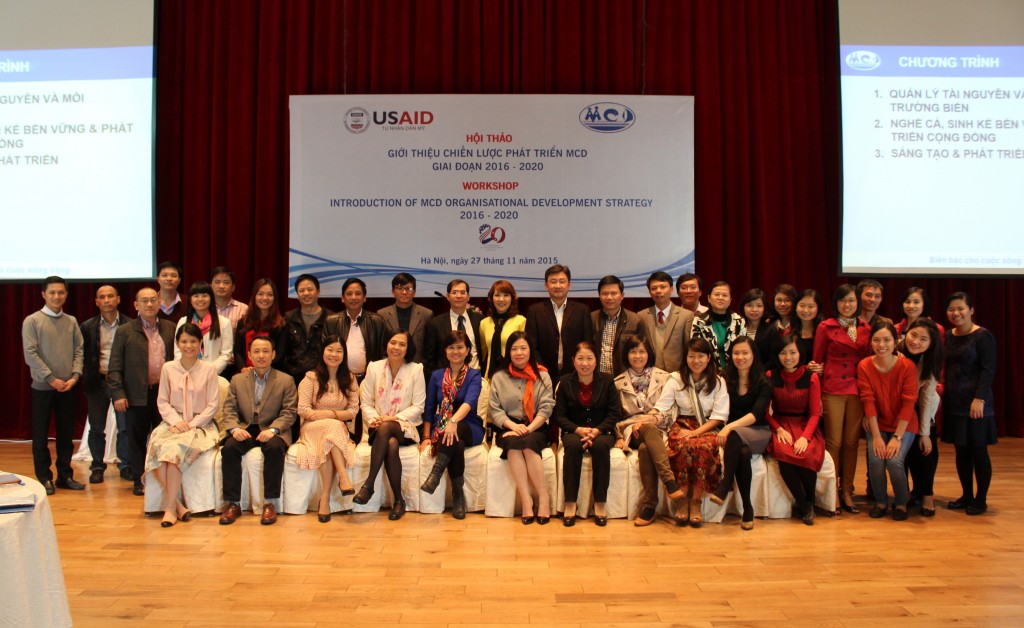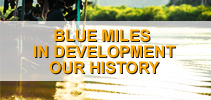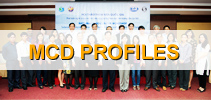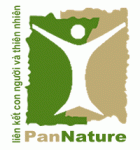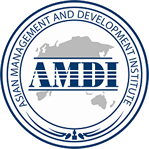About us
MCD PROFILE
(visit mpavietnam.net for our best practices)
History
Centre for Marinelife Conservation and Community Development (MCD) was established in 2003 under the Vietnam Association of Marine Science and Technology with the license granted by the Ministry of Science and Technology of Vietnam (License A-088). Inherited experience from the Live Reef Fish Trade Reform Program as part of the joint partnership between the US based NGO called International Marinelife Alliance (IMA) and the former Ministry of Fisheries of Vietnam for period 1999-2002, since 2003 MCD was formed and performed as a Vietnamese scientific and technological non-state non-profit organization (VNGO).
MCD recognizes the interdependency of coastal communities and marine ecosystems.
Coastal and marine environment must be protected to ensure the livelihoods and quality of life for local people. MCD wishes to contribute to harmonizing conservation with socio-economic development. Therefore, since its establishment, MCD has been fully devoted to coastal ecosystem conservation and community livelihoods development. From 2008, as climate change emerged as a big challenge internationally and locally, MCD started to embed climate change considerations and responses into its strategies and work. Until now, MCD’s focus of works includes environment & natural resources management, community sustainable livelihood development, communications and policy advocacy, in which climate change response, disaster risk reduction, gender equality are the cross-cutting issues.
Vision
MCD is a leading Vietnamese NGO in the field of coastal and marine ecosystem conservation, striving for a coastal zone of Vietnam with healthy ecosystems and a good quality of life for coastal communities, especially the most vulnerable.
Mission
MCD commits to promoting active cooperation between related stakeholders, implementing initiatives that integrate local knowledge and international experiences, in order to better manage coastal ecosystems and improve coastal communities’ living conditions, contributing to sustainable development of the coastal zone, especially in the climate change context
Approaches
Integrated coastal management (ICM) is an internationally accepted approach to address conflicting uses in the coastal zone and to manage coastal resources. While only recently being introduced in Vietnam, it is proved to be relevant and highly recommended. At the national level, Vietnam has adopted ICM as the overall approach for managing the marine and coastal areas of Vietnam. With strong knowledge of ICM through its involvement in various ICM initiatives in Vietnam, MCD applies ICM as the bottom line approach for our interventions at all levels. Specifically, at local level, ICM is translated into more popular patterns called community based coastal resources management (CBCRM) and resources co-management. In whatever patterns, the emphasis is on the harmonized and coordinated access to and use of the natural resources, empowerment of the local institutions and community groups in equality with other actors, and improvement of their capacity and participation in the resources management.
Ecosystem based adaptation (EbA) is the approach that promotes the use of biodiversity and ecosystem services as part of an overall adaptation strategy to help people to adapt to the adverse effects of climate change. EbA uses sustainable management, conservation, and restoration of ecosystems in order to provide benefits, build resilience, and reduce the vulnerability of communities against the climate change impacts. MCD applies EbA as the key approach for MCD’s climate change response activities that concentrate in the areas of adaptation, policy advocacy, and capacity development.
Priorities of work
MCD gives priority of work to Vietnam’s coastal areas with intense conflicts between coastal resource uses and environment conservation with economic development, with evidenced and predicted climate change impacts.
The main target groups of MCD work include:
- Poor small-scale fisher/aquaculturer/farmer population and coastal inhabitants, especially the youth, who are directly dependent on coastal aquatic and environmental resources and most vulnerable to climate changes and biodiversity degradation
- Community groups (Women’s Union, Youth Union, Fisheries Associations, Veteran’s Associations, etc. ) that have roles in mobilizing local people to participate in improving resource use and management practices and climate change responses
- Local authorities and staff of line ministries including protected areas management boards, who are mandated to administer the coastal communities, safeguard the coastal natural resources, biodiversity and environment, respond to climate change and disaster risks
- Policy makers on coastal zone management and climate change adaptation at national level, who can institutionalize and legalize the improved management practices for nation-wide implementation
- Other civil society organizations that strive for improving the quality of life of the coastal poor and the coastal environment
Geographical focus
MCD’s project sites include coastal wetland areas in the Red River Delta in the North (Hai Phong city with Cat Ba island, provinces of Nam Dinh, Thai Binh, Quang Ninh), coral reef ecosystems in the Central Coast (provinces of Khanh Hoa, Quang Nam, Ninh Thuan, Binh Dinh), coastal mangroves in the Mekong River Delta (provinces of Ca Mau, Kien Giang…). MCD has already worked in these areas for years and gained the trust, interest and confidence of local communities, local and national government as well as private sector. It has developed practical models of combining coastal ecosystem conservation and community livelihood improvement, with climate change adaptation considerations, that work well in these areas.
Primary Development Focus
The principal changes that MCD seek to contribute to include the following:
- Governance and Accountability: The enabling environment for the co-management of natural resources is in place in most of the Biosphere Reserve (BR), Marine Protected Areas (MPAs), Nature Reserves/National Parks, and World Heritage Sites, where the voice and opinion of the local community is heard and reflected in the decision making processes.
- Equity and Equality: Values of the products and services produced by small scale fishermen and agriculture farmers are increased and benefit them, contributing to the increased quality of life, especially of the poor, marginalized and women. Youth engagement is also considered a priority.
- Inclusiveness: An enabling environment where lessons learnt from non-state actors in natural resources management and community development are considered by relevant government at all levels.
- Resilience: The concept of resilience is an effective tool for analyzing adaptive changes and uncertainties and how to maintain stability in the face of climate changes, whereas a resilient coastal community is synonymous with sustainability.
Strategic professional themes
MCD has three principal themes:
1. Coastal Environment & Resource Management
– Promote and support marine ecosystem conservation and restoration. Enhancing coastal resources management effect through (i) marine reserve model managed by local provinces and enlarging model’s impact area; (ii) reinforcing interdisciplinary and interprovincial coordination mechanism in managing protected areas with national and international importance.
– Promote co-management model application of aquatic activity to intensify management and utilization effect of marine and coastal aquatic resources.
– Reinforce awareness and knowledge about integrated coastal management approach for managers and specialists in present and future, promote integrated coastal management application to sustainably manage and use coastal resources.
2. Sustainable Livelihoods for coastal communities
– Engage with coastal communities to assess their challenges and needs, and empower them by providing information, training and advice.
– Strengthen community’s knowledge, skills and proactive sense of sustainable local resources management and using (fishing, aquaculture, and farming).
– Support community to develop alternative livelihoods by relying upon the natural resources and local cultures (e.g. community-based ecotourism), set up pilot model and multi-replicate it.
– Help people to have stable and long-term income by associating community livelihood activities with efficient business doing mode, support micro-finance and community based business doing skills, connect local producers to relevant private businesses in value chains.
3. Capacity Building, Communications and Policy Advocacy
– Use modern methods and research, and support study in marine conservation, coastal resource management, community development and sustainable livelihoods.
– Identify and disseminate reliable information, propose scientific solutions like a basis for sustainable livelihoods development in coastal community.
– Collaborate with research agencies, scientists, experts in building and deploying science application programs and projects into sustainable coastal management and using, for coastal societal economic development.
– Raise awareness of the values of marine ecosystems and their biodiversity, and the importance of their conservation and rehabilitation, as well as the necessity of sustainable costal resources management and exploitation
– Facilitate information-sharing across our networks and assist decision makers to shape policies that benefit coastal communities and the ecosystems on which they depend.
– Provide a voice for local people to help to resolve community problem
Gender mainstreaming: Women play a critical role in both coastal development economies and in efforts to conserve coastal resources but often face significant challenges to contribute to effective management. MCD believes that including women in coastal management will not only benefit marine conservation, but also develop the communities’ capacities, to enable effective and sustainable management of their local coastal resource and increasing their adaptive capacity in the context of climate change impacts.
Key achievements
Marine and coastal resources management
MCD has introduced and piloted different approaches and tools in coastal resources management, particularly:
Biosphere Reserve concept was promoted as an effective tool to care about important ecosystems that need to be protected and restored and its related local communities as part of the system. This concept opens a harmonious approach that is appropriate to various local contexts. Two biosphere reserves in the Red river delta have been supported by MCD.
Environment Risk Assessment (ERA) is a tool applied by MCD with support from Swedish experts. This tool was introduced to two biosphere reserves and widely shared with partners and communities.
Integrated coastal zone management (ICZM) at community level: MCD piloted the implementation of ICZM in selected locations of coral reef areas such as in Ran Trao of Khanh Hoa province. This approach was expanded to adjacent provinces via a network of locally managed marine areas (LMMA) that managed by the local authorities and local people. MCD also provided advisory support to the ICZM program of the government, as well as supporting documentation and dissemination of lessons learned through Nha Trang University. In addition, the concept of a practical approach to Marine Spatial Planning has also been introduced to the relevant government authorities.
Livelihoods and community development
Support livelihood and income improvement: MCD has worked in 13 coastal communes, directly supporting more than 1000 households with livelihood models that are adaptive to climate change impact. MCD also provided information and capacity building for almost 30,000 vulnerable poor residents in coastal areas. Some new crop varieties (such as salt tolerant rice, vegetables, mushroom cultivation, etc.) have been introduced by MCD and adopted by the local communities. These new livelihoods helped to significantly improve the income of participating households. In addition, a co-management mechanism of natural resources, including mangrove, aquatic resources has been introduced to the projected communes, to ensure sustainable livelihoods the local people.
Enhance capacity for communities in response to climate change: The communities in MCD project locations have been equipped with information and knowledge on climate change, and on solutions to reduce their vulnerability. With this strengthened capacity, they are more able to indentify suitable alternatives of livelihoods, develop strong resilience to climate change conditions and reduce the impacts of natural disasters.
Improve capacity of local officials: Alongside support for new livelihood models, hundreds of local officials have been provided with relevant technical knowledge and skills for evaluating the impact of climate change and natural disasters. Through engagement in the process of the Climate Change Vulnerability and Capacity Assessment (CVCA), these officials have gained not only practical experience, but also skills in data collecting and feedback from communities. These data are used as inputs to planning and integrating climate change response measurements for the local socio-economic development plan and other social programs of the government.
Communications and advocacy
With extensive practical field experiences, MCD has made meaningful contributions to a variety of policy forums related to community participation in coastal resource management, such as development of guidelines for co-management of aquatic resources. MCD has also provided recommendations and inputs to different important strategies at the national level on climate change response and marine conservation. Experiences and successful approaches from MCD’s project implementation have also been disseminated widely to partners and the public through a diversity of media such as internet-based social media, newspapers, radio, television etc.
Human resources and organizational development
During its first period of operation (2003-2007), MCD‘s organisational and human resources were divided into two programs which worked on two ecosystems of coral reef and mangrove.The projects that MCD implemented during this period were mainly small-scale, solving specific issues in each location. From 2008, MCD was re-organized to follow core specialized competencies to promote a professional development for the organization. Besides the core expertises such as environment management, biology, ecology, new competences such as climate change, practical standards in fisheries, ecological risk assessment combined with socio-economic indicators, and social entrepreneurship were added to MCD capacity. Recently MCD has organized its works into three programs: (1) Coastal environment and natural resources; (2) Sustainable coastal livelihoods; (3) Innovations for development. MCD head office is based in Hanoi, with local offices/focal points in all three regions of Vietnam. From a small group of four people in 2005, by now, MCD workforce has grown up to more or less 25 staff, led by a board of directors. All MCD leaders and staffs have bachelor and master level of education, specializing in biology, environmental management, integrated coastal zone management, climate change, fisheries, economics, organizational management, social management, business development, finance and accounting. Throughout its history, MCD has obtained voluntary support from a number of devoted international advisors and experts, who deeply share MCD vision and mission.
Partnership and alliance development
MCD has been able to establish strategic partnerships at both national and international levels with a wide range of stakeholders including government authorities, INGOs, Vietnamese NGOs, and donor agencies. MCD has been actively engaged in many policy and advocacy forums, especially in the fields of marine living resources conservation, climate change and disaster risk reduction. MCD is a founder and core member of a number of national networks including Network of Vietnamese NGOs Working on Climate Change (VNGO-CC), the Climate Change Working Group (CCWG). MCD is in charge of Resilient Community Chapter of the Vietnam Association for Conservation of Nature and Environment (VACNE). MCD is also a member of International Union for Conservation of Nature (IUCN), the Asian Disaster Reduction and Response Network (ADRRN), South East for Fish for Justice Network (SEAFish). This engagement helps MCD to confirm its position and role at the national level. More importantly, this involvement is a good opportunity for MCD to promote its experiences and successes, and to echo common voices of CSOs for larger policy impact. As well, MCD has also emphasised partnership and alliance building in joint initiatives to pursue common goals.
MCD has strengthened and expanded its partnership with several donors such as the EC, Sida, Oxfam, AusAID/DFAT, and the McKnight Foundation. Since 2014, MCD became a direct partner of USAID, and until now has been awarded two important projects from USAID with focus on environment protection and climate change adaptation. These strong partnerships provided a solid foundation for MCD to sustain its funding sources during the past years. Recently, MCD also established collaboration with some companies and new donors, to stabilize its income in the context of possible reduction of conventional grant sources.
The ICC-CCC program
Was first implemented on 23 September 2000 by the International Marine Alliance (IMA-VN), the precursor of MCD initiated in Nha Trang City, Khanh Hoa. Since then, MCD has been the focal point for the annual ICC in Vietnam.
Key projects, in chronological order
- Supporting poor coastal Vietnamese communities in advancing sustainable livelihoods and conserving the environment (2007 – 2011; funded by Oxfam Novib and European Union)
- Supporting poor coastal communities in Vietnam through increasing the leverage and impacts of local NGO community-based interventions (2008 – 2010; funded by McKnight Foundation)
- Research project on the economics of adaptation to climate change in Vietnam’s aquaculture sector (2009 to 2010; funded by World Bank)
- Ecolife Café project– a community learning space to adapt to climate change (2010; funded by iBOP Asia)
- National consultation on developing an awareness-raising program on climate change for communities in and around Marine Protected Areas (MPA) (2010; subcontract with Sustainable livelihoods in and around MPA component, Ministry of Agriculture and Rural Development)
- Developing a manual with guidelines on climate change vulnerability assessment for coastal communities (2009-2010; funded by SEAFish)
- Strengthening CSO participation and local stakeholders’ capacity to mainstream environmental aspects in the development of five-year socio-economic plans in selected coastal central provinces (2010-2012; funded by GEF)
- Enhancing resilience of coastal and marine biosphere reserves in Vietnam through strengthening natural resources management and sustaining community livelihoods (2011 – 2013; funded by SIDA)
- Partnership for improved climate resilience of Biosphere Reserves and Marine Protected Areas in Vietnam (PBM) (2012–2014; funded by Oxfam Novib)
10. Improving National Marine Protected Area Management in Vietnam (2011-2013; funded by NOAA)
11. Internship and Village facilitators (IVF) for Climate change community based adaptation program in biosphere reserves of Vietnam (2013-2015; funded by McKnight Foundation)
12. Partnership for Equitable Resilience to the Impacts of Climate Change of the Coastal Communities in Deltas of Vietnam (PRC) (2012-2014; funded by AusAID)
13. Strengthening the role of Vietnamese NGOs in climate change communications and policy advocacy (2014-2015; funded by DFAT through SRD)
14. Scientific Capacity Building in Climate Change Research Techniques for VNGOs (2014-2015; funded by Asian Pacific Network – APN)
15. MCD – Biosphere Reserve as an Approach for Climate Change Resilience in the Red River Delta (BRC) (2014-2015; funded by USAID via subcontract with Vietnam Forests and Deltas Program)
16. Hạ Long Cát Bà Alliance – Local engagement for sustainable development (2014-2017; funded by USAID)
17. Red River Delta Adaptation and Youth (READY) (2015-2018; funded by USAID)
18. Enabling Boat (2017) – funded by Microsoft Vietnam
19. Enhancing resilience of the small scale fishing communities and marine ecosystems in Locally Managed Marine Area (LMMA) in the Central Coast of Vietnam
Contact information:
Centre for Marinelife Conservation and Community Development (MCD)
Suite 3104, Building 34T, Hoang Dao Thuy street, Ha Noi
ĐT: +84-24-2221 2923; Fax: +84-24-2221 2924
Email: mcd@mcdvn.azurewebsites.net
Website: www.mcdvietnam.org
Facebook: www.facebook.com/mcdvietnam.org



